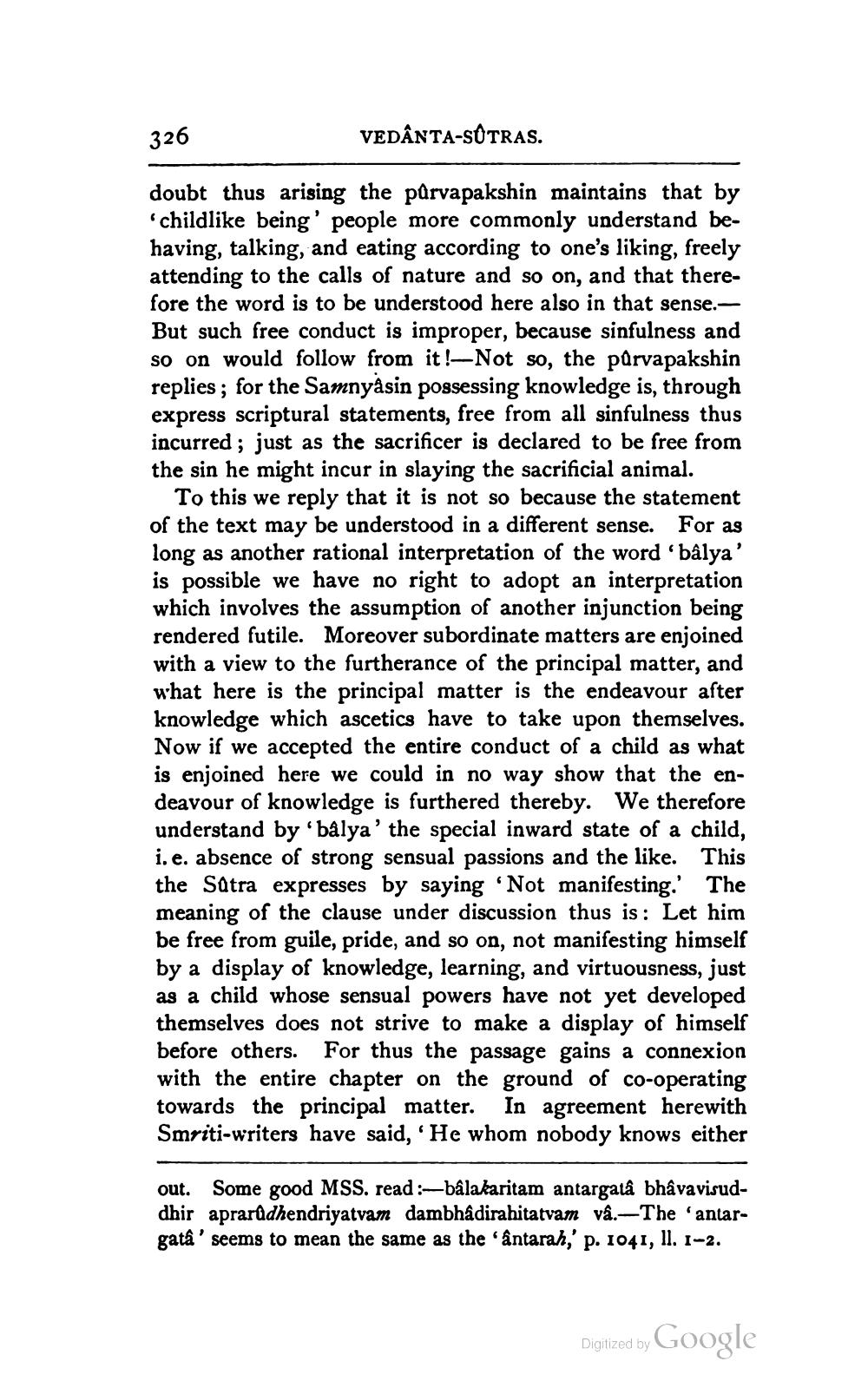________________
326
VEDÂNTA-SOTRAS.
doubt thus arising the pärvapakshin maintains that by
childlike being' people more commonly understand behaving, talking, and eating according to one's liking, freely attending to the calls of nature and so on, and that therefore the word is to be understood here also in that sense. - But such free conduct is improper, because sinfulness and so on would follow from it!--Not so, the pärvapakshin replies; for the Samnyåsin possessing knowledge is, through express scriptural statements, free from all sinfulness thus incurred; just as the sacrificer is declared to be free from the sin he might incur in slaying the sacrificial animal.
To this we reply that it is not so because the statement of the text may be understood in a different sense. For as long as another rational interpretation of the word 'bâlya' is possible we have no right to adopt an interpretation which involves the assumption of another injunction being rendered futile. Moreover subordinate matters are enjoined with a view to the furtherance of the principal matter, and what here is the principal matter is the endeavour after knowledge which ascetics have to take upon themselves. Now if we accepted the entire conduct of a child as what is enjoined here we could in no way show that the endeavour of knowledge is furthered thereby. We therefore understand by 'bâlya’ the special inward state of a child, i.e. absence of strong sensual passions and the like. This the Satra expresses by saying 'Not manifesting. The meaning of the clause under discussion thus is: Let him be free from guile, pride, and so on, not manifesting himself by a display of knowledge, learning, and virtuousness, just as a child whose sensual powers have not yet developed themselves does not strive to make a display of himself before others. For thus the passage gains a connexion with the entire chapter on the ground of co-operating towards the principal matter. In agreement herewith Smriti-writers have said, 'He whom nobody knows either
out. Some good MSS. read :--balakaritam antargatâ bhâvavisuddhir aprarûdhendriyatvam dambhadirahitatvam vå.—The 'antargata' seems to mean the same as the "ântarah,' p. 1041, II. 1-2.
Digitized by
Digilzed by Google




